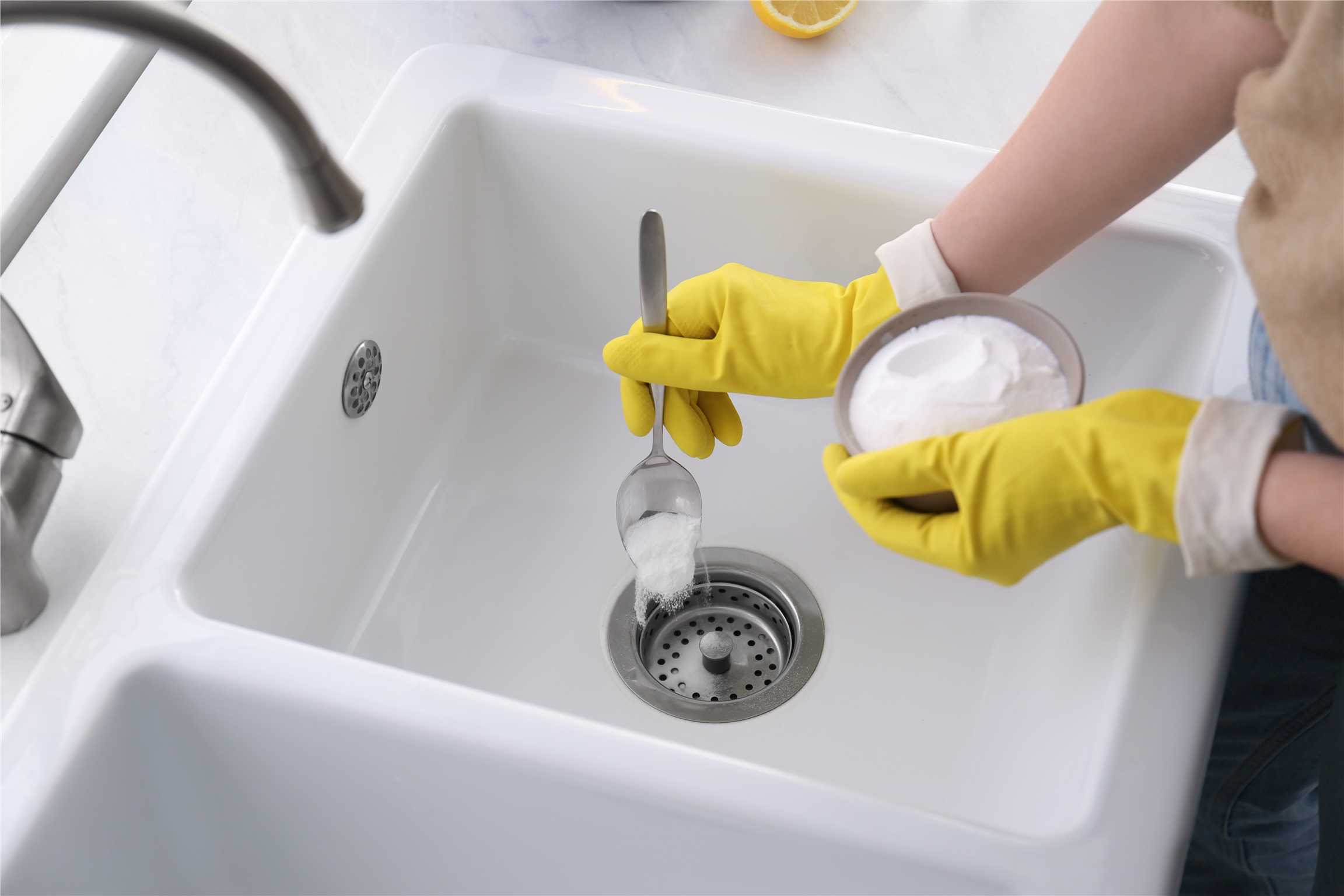Specializing in AI-driven enzyme design and optimization, EnzymoGenius™ specializes in providing a comprehensive range of enzyme-based services and solutions tailored to the specific demands of drain cleaner research. Leveraging advanced AI-driven technologies, we offer innovative enzymatic approaches to address the challenges and complexities associated with this field.

Background
Drain cleaner, a potent solution, plays a crucial role in addressing plumbing issues by efficiently clearing blockages within drainage systems. This specialized formulation exhibits a remarkable capability to eliminate impediments within pipes, allowing for the smooth flow of water and waste. The application of this solution significantly enhances plumbing hygiene and minimizes the risk of blockages and corrosion, ensuring the optimal functionality of drainage infrastructure.
Enzymes, pivotal components within drain cleaner formulations, act as biocatalysts to accelerate the breakdown of organic matter, such as grease, hair, and food residues, into simpler compounds. Researchers in this field focus on optimizing enzyme stability, substrate specificity, and pH adaptability, which are essential for enhancing the efficacy of drain cleaners. Furthermore, investigations delve into the development of eco-friendly enzyme-based formulations, aligning with sustainable practices, which is a burgeoning trend in the realm of drain cleaner research. By advancing the understanding of enzyme-driven drain cleaning processes, professionals aim to provide efficient, environmentally conscious solutions for maintaining plumbing systems.
Products and Solutions Offering
Custom Products
- Lipase Enzymes: These enzymes effectively break down fats, oils, and grease (FOG) within drain systems, preventing clogs.
- Protease Enzymes: Proteases target proteins and can help in removing organic debris from drainpipes.
- Amylase Enzymes: Amylases break down starches and carbohydrates, which can contribute to drain blockages.
- Esterase Enzymes: These enzymes are useful for hydrolyzing esters, which are often found in organic clogs.
- Cellulase Enzymes: Cellulases can degrade cellulose, a common component of plant material that may enter drainage systems.
Custom Solutions
- Biodegradable Drain Cleaners: Enzyme formulations are designed to break down organic clogs, grease, and fats commonly found in drainage systems. These enzymes enhance the cleaning process by targeting and digesting these substances.
- Odor Neutralization: Enzymes can be engineered to effectively neutralize foul odors in drains, ensuring a fresher and more pleasant environment.
- Pipe Maintenance: Enzyme-based solutions can assist in preventing clogs and blockages by continuously breaking down organic matter within the pipes, reducing the need for harsh chemical drain cleaners.
- Environmental Impact Mitigation: Enzymes offer eco-friendly alternatives to traditional drain cleaners, reducing the harmful impact on the environment and water systems.
Services Process
1. Data Collection: Our AI-driven platform collects data on the specific challenges and requirements of drain cleaner research, including the types of clogs, environmental considerations, and desired outcomes.
2. Algorithmic Analysis: Advanced algorithms analyze the collected data to identify the most suitable enzymes and enzyme formulations for the task.
3. Enzyme Engineering: Enzymes are genetically modified and optimized to enhance their performance in breaking down specific drain blockage components.
4. Testing and Validation: The engineered enzymes and formulations undergo rigorous testing to ensure their effectiveness and safety.
5. Continuous Improvement: Our AI system continually refines enzyme designs and solutions based on ongoing data feedback, optimizing performance.
Technical Advantages
- Machine Learning: Advanced machine learning algorithms assist in data analysis, enzyme design, and solution optimization.
- Genetic Engineering: Genetic engineering techniques are employed to modify enzymes for improved performance.
- Bioremediation: Enzymes are used in bioremediation processes to degrade organic pollutants in drain systems.
- Spectroscopy: Analytical spectroscopy is used to assess the effectiveness of enzyme-based solutions.
- Nanotechnology: Nanoparticles can be incorporated into enzyme formulations to enhance their penetration and efficacy.
CD Biosynsis excels in enzyme selection, formulation design, optimization, testing, and custom solutions, all facilitated by our AI-driven design process. We employ cutting-edge technologies such as machine learning, bioinformatics, and nanotechnology to deliver the best-in-class solutions. For researchers and businesses seeking to elevate their fabric & household care products, our platform stands ready to drive innovation and efficiency. Contact us to explore the endless possibilities of cleaning and care.

































